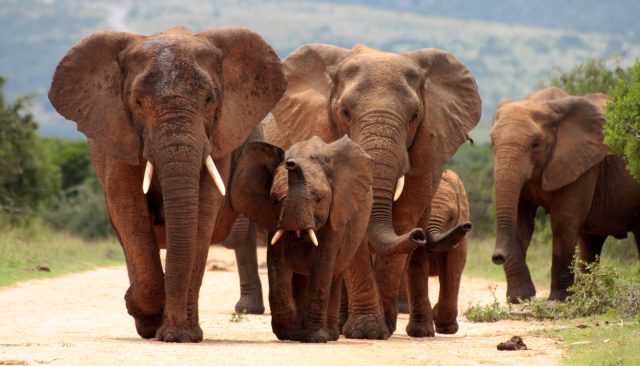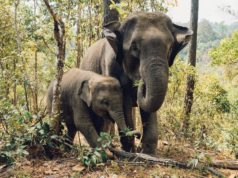Compared to humans, elephants have way more cells than us. It’s a mystery how these animals don’t get cancer as often as humans because there are so many cells there should be a higher probability of cells mutating. Yet they have evolved well enough for their immune systems to fight cancer.
Every animal has its own strategy in combating cancer; some are cleverer than others, and a good example of this are elephants. But there are also other species that are actually very prone to it. Researches are looking farther into the other forms of cancer in animals to see how they can relate it to humans and further treatments effectiveness.
Elephants have up to 40 TP53 genes that effectively suppress and kill the cancerous cells before they can travel to the rest of the body. People also have this along with other types of animals but contain only two. Its no news to know that TP53 can hold back and kill cancer but it was beyond anyone’s imagination that an animal had not just two but 40!
The gene is not the only defense that the elephant has developed. When cells are damaged or infected they would just die instead of trying to recover. Attempts to recover after damage will increase the chance of a cell mutation.
Researchers took information from zoos and vets along with data from lab research from wild animals to figure out if there are any other animals that have low rates of cancer. So far the list starts with whales, squirrels, and horses.
Humans have a 50 percent chance of getting cancer throughout their lifetime but majority of animals have up to 35 percent chance in theirs.
Naked Mole rats are the most effective in combating cancer. Of what is reported there is only 6 known cases of mole rats getting cancer. A big lead that scientists have been looking at is the large amounts of hyaluronic acid in mole rats. It basically sticks the cells together thus not letting them split and spreading out and end up dying; although that is the speculation of why they rarely ever get cancer.
They also contain a gene that is called P16 and with the mixture of P16 and hyaluronic acid can make cancerous cells completely shut down and die.
With all of these strategies that animals have we can try and focus and see if it is possible to implement treatments that would have the same methods to combat cancer. These could completely get rid of tumors and also keep the cancer from spreading more effectively than just freezing them and killing them with two treatments. They could possibly stop spreading and kill cells in one go.




























